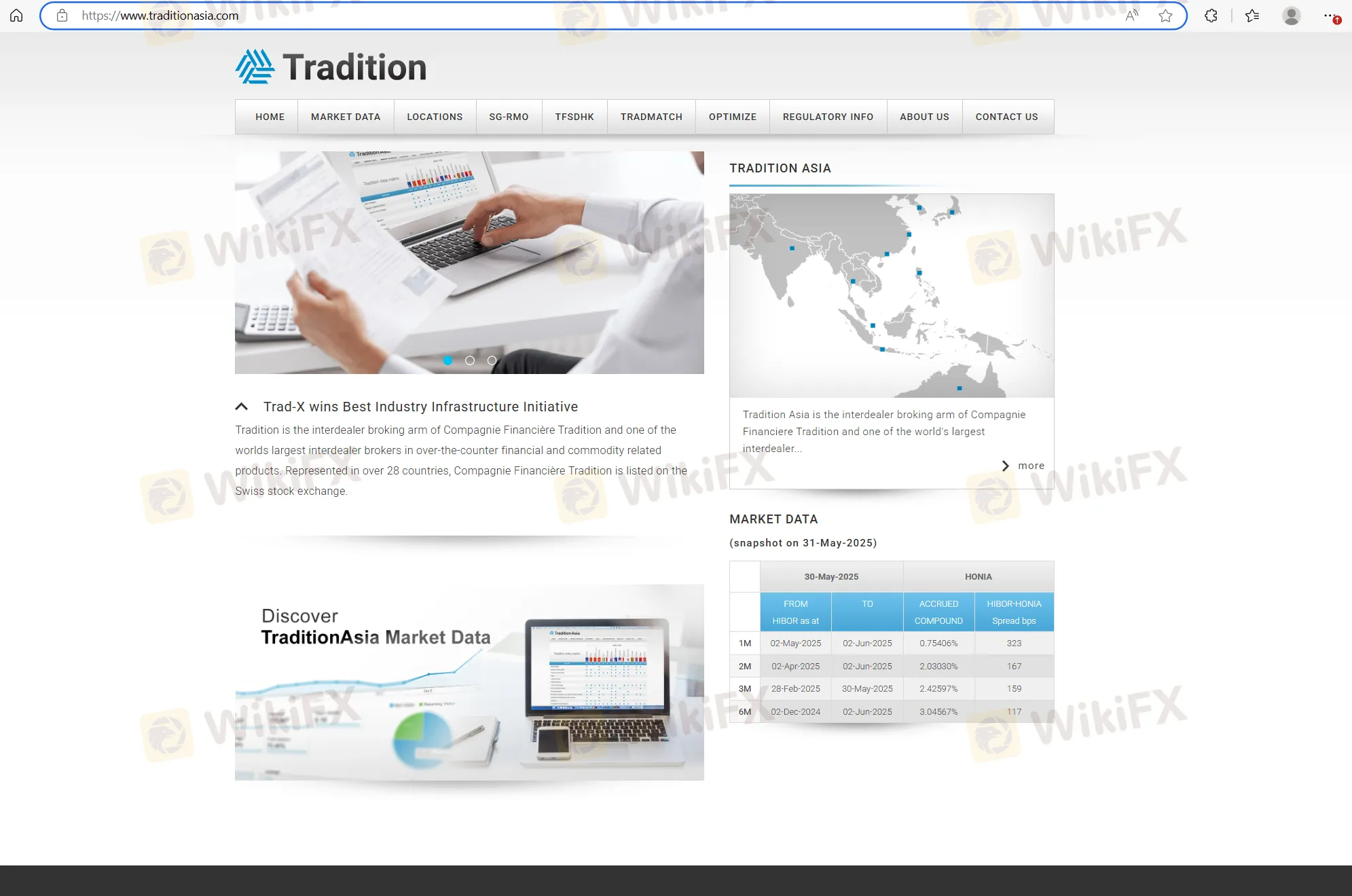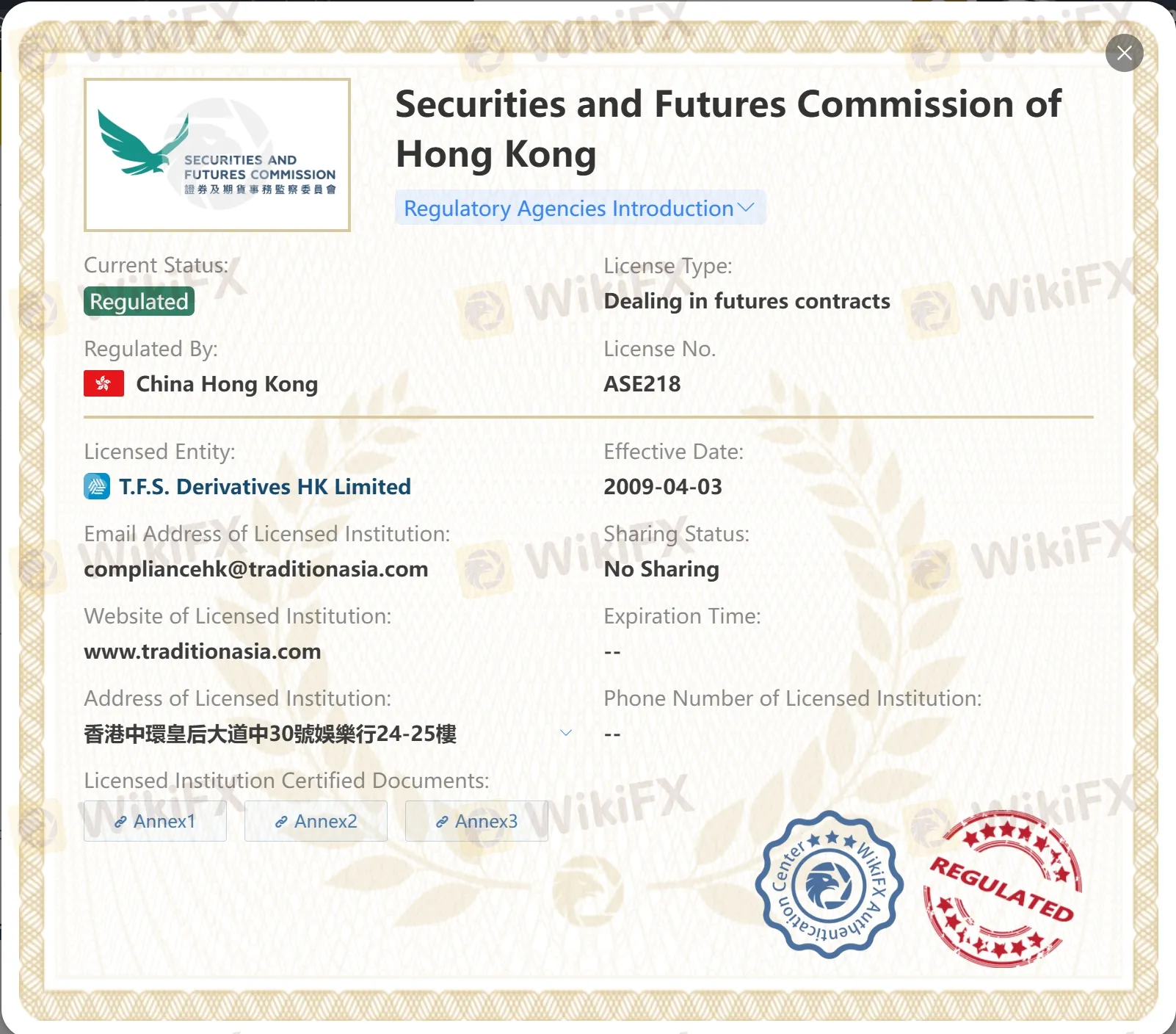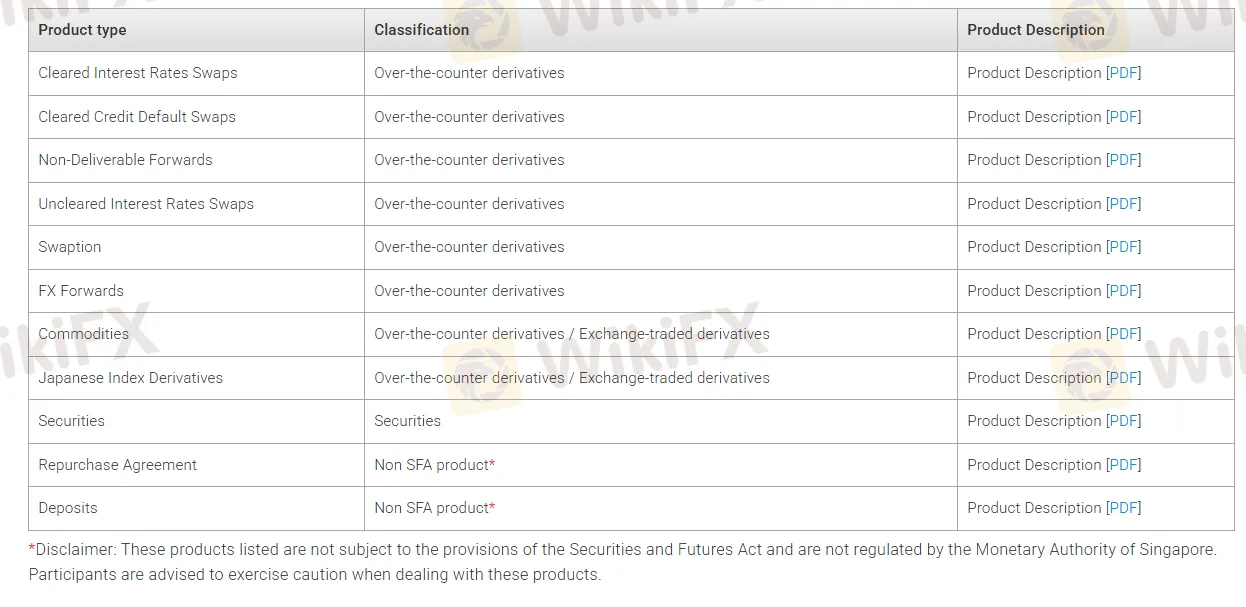Giới thiệu doanh nghiệp
| Tradition Tóm tắt Đánh giá | |
| Thành lập | 2004 |
| Quốc gia/Vùng đăng ký | Australia |
| Quy định | SFC |
| Công cụ Thị trường | Chuyển tiếp FX, hàng hóa, dẫn xuất chỉ số Nhật Bản, chứng khoán, swaption, chuyển tiếp không giao dịch, v.v. |
| Nền tảng Giao dịch | Hệ thống TRADe |
| Hỗ trợ Khách hàng | Điện thoại: +61 2 9135 4931; +61 2 9135 4936; +61 2 9135 4933 |
| Email: market.data.sales@traditionasia.com; trading.operations@traditionasia.com | |
Địa chỉ:
| |
| Thông tin liên hệ cho các văn phòng khác: https://www.traditionasia.com/contactUS | |
Thông tin về Tradition
Tradition là bộ phận môi giới giữa các bên của Compagnie Financière Tradition, một trong những nhà môi giới lớn nhất thế giới về các sản phẩm tài chính và hàng hóa ngoại vi như chuyển tiếp FX, hàng hóa, dẫn xuất chỉ số Nhật Bản, chứng khoán, swaption, v.v. Hiện nay, nhà môi giới hoạt động tại hơn 28 quốc gia bao gồm Trung Quốc, Hồng Kông, Nhật Bản, Singapore, v.v.
Điều tốt là công ty được quy định bởi SFC, điều này có nghĩa là các hoạt động tài chính của nó được theo dõi chặt chẽ bởi các cơ quan này, một phần đảm bảo một mức độ bảo vệ khách hàng nhất định.

Ưu điểm và Nhược điểm
| Ưu điểm | Nhược điểm |
| Được quy định bởi SFC | Thiếu minh bạch về điều kiện giao dịch |
| Hiện diện toàn cầu | |
| Các sản phẩm giao dịch đa dạng |
Tradition Có Uy tín không?
Tradition hiện đang được quản lý tốt bởi Ủy ban Chứng khoán và Hợp đồng Tương lai Hồng Kông (SFC) với số giấy phép T2023364.
| Quốc gia Được Quản lý | Cơ quan Quản lý | Tình trạng Hiện tại | Thực Thể Được Quản lý | Loại Giấy Phép | Số Giấy Phép |
 | SFC | Được Quản lý | T.F.S. Derivatives HK Limited | Giao dịch hợp đồng tương lai | ASE218 |

| Công Cụ Giao Dịch | Được Hỗ Trợ |
| Chuyển tiếp FX | ✔ |
| Hàng hóa | ✔ |
| Chứng khoán chỉ số Nhật Bản | ✔ |
| Chứng khoán | ✔ |
| Swaption | ✔ |
| Chuyển tiếp không giao nhận | ✔ |
| Chỉ số | ❌ |
| Cổ phiếu | ❌ |
| Tiền điện tử | ❌ |
| Trái phiếu | ❌ |
| Tùy chọn | ❌ |
| ETFs | ❌ |

Nền Tảng Giao Dịch
Nền tảng giao dịch của Tradition, được vận hành bởi TFS Derivatives HK Ltd, là một hệ thống đặt lệnh được quản lý được thiết kế để giao dịch Hợp đồng Swap Mặc định Tín dụng (CDS) và Trái phiếu. Nó hỗ trợ phân phối lệnh và thông báo thực hiện thông qua cảnh báo thời gian thực. Nền tảng cũng hỗ trợ các phiên khớp giá cố định, hoặc đấu giá, cho phép các bên tham gia gửi lệnh mua hoặc bán tại mức giá được công bố.
























